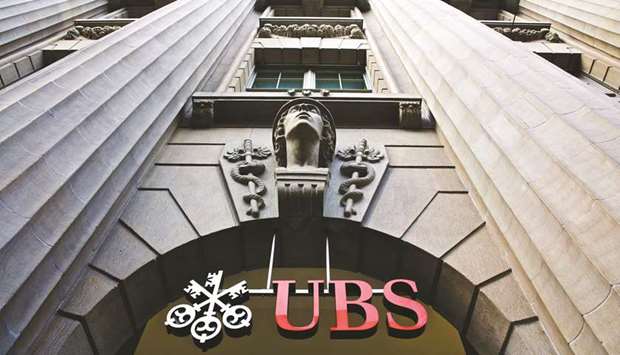UBS Group AG is pushing further into automated trading by programming its robots to handle derivatives and exchange-traded funds tied to corporate debt.
The Swiss bank is looking to make it easier for customers to find the best way to cut credit exposure or ramp up risk, potentially using funds and credit derivatives that trade often, said Gary Rapp, head of investment-grade debt trading. The bank last year hired macro trader Colin Stewart from BlueCrest Capital Management to lead trading of the products.
The move comes after UBS launched automated trading for investment-grade corporate bonds last year.
Originally, that effort focused on smaller trades that on their own can be less profitable for Wall Street firms to handle than big ones. When combined, these transactions can give a boost to trading volume, which is why a wide range of brokerages are automating that trading.
Now investment firms want to be able to buy or sell market exposure quickly using exchange-traded funds and index credit derivatives, Rapp said. Among institutional investors, 59% reported increasing their use of bond ETFs in recent years, with more than half using at least four different funds, according to a study by Greenwich Associates.
“Increasingly clients are relying on these tools,” Rapp said. “It’s all becoming much more integrated.”
UBS doesn’t expect its efforts to automate traders out of jobs anytime soon, Stewart said. Algorithmic trading systems usually allow traders to advise clients on cost-effective ways of executing their bets – the UBS systems analyse historical data on inputs like liquidity and trading patterns to help derive the best prices.
But human judgment is still critical to the equation, he said, especially when dealing with big blocks of securities for clients. “As advanced as the machines get, the reality in corporate bonds is there are many scenarios where there is not enough good data,” Stewart said. “It’s a huge advantage to have had trading experience.
Combining the human with the technology is the most profitable.” Boosting its ETF trading can help UBS as well. The Swiss bank can buy ETFs for customers, then split up the funds into their constituent bonds, known as a portfolio trade.
That can allow the brokerage to quickly get its hands on debt that might be otherwise hard to buy, a business that Goldman Sachs Group Inc, JPMorgan Chase & Co and Citigroup Inc have also built in recent years. At the same time, more banks are looking to modernise trading efforts in the $8tn corporate credit market, where most trades still play out over the phone or via instant messaging.
Greenwich Associates found that about 26% of corporate bond trades took place electronically as of late 2018.

A sign hangs above the entrance to UBS headquarters in Zurich.
